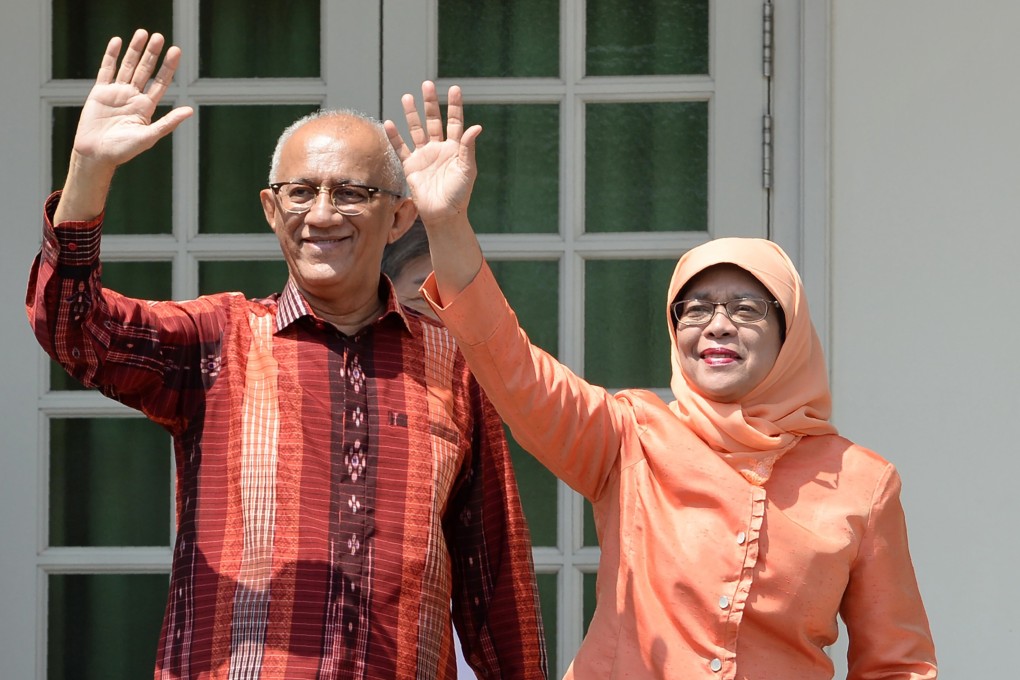Advertisement
Singapore podcast hosts apologise for misogynistic comments after criticism from female president
- Halimah Yacob, Singapore’s first woman president, has slammed the three male hosts of Okletsgo for their ‘offensive and humiliating’ remarks
- ‘Women are not objects to be made fun of, ridiculed and trampled upon’, she wrote on Facebook
Reading Time:3 minutes
Why you can trust SCMP

Women in Singapore had been calling out the Okletsgo podcast hosts on social media for almost a week without an apology. And then the city state’s first female president stepped in.
On Monday morning, the Okletsgo podcast hosts woke up to President Halimah Yacob criticising their show for its “offensive, humiliating and misogynistic remarks”.
Halimah, in a strongly worded Facebook post, said it was “not OK to treat women like dirtbags and punching bags”, and called on the Okletsgo podcast hosts to apologise.
Advertisement
“If we continue to perpetuate the image of women being inferior, existing only for the purpose of male sexual gratification, then we have to be held responsible for being one of the perpetrators of violence against women,” she wrote.
“Women are not objects to be made fun of, ridiculed and trampled upon, and no one has the right to do that to them … Taking cheap potshots at women to boost ratings or to make some people laugh no matter how offensive, cannot be justified under any label be it freedom of speech or encouraging conversations.”
Advertisement
Advertisement
Select Voice
Choose your listening speed
Get through articles 2x faster
1.25x
250 WPM
Slow
Average
Fast
1.25x